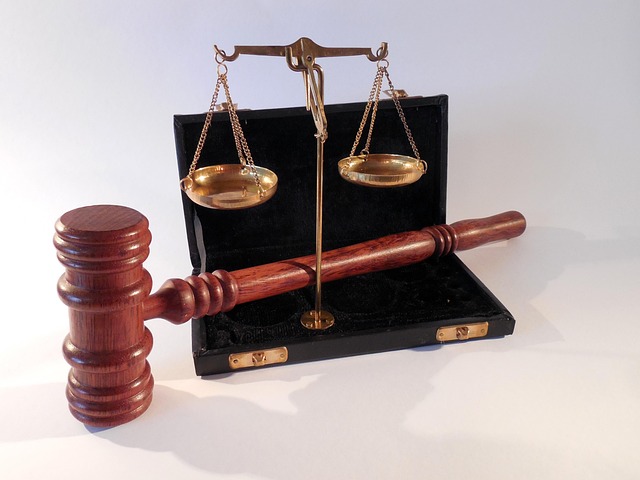Consumer protection laws ensure fair transactions through product safety and truthful advertising. Differences Between State and Federal Sentencing play a crucial role in enforcement, with state courts handling local issues and federal courts taking jurisdiction over interstate commerce cases. These differences impact the scope and severity of penalties, affecting both businesses and consumers. Case studies illustrate the significant outcomes of consumer protection lawsuits, driving companies to improve internal controls and ethical practices.
Consumer protection suits play a pivotal role in safeguarding individuals from unfair business practices. This article delves into the intricacies of consumer protection laws, exploring key differences between state and federal jurisdiction. We analyze the profound impact on both consumers and businesses, highlighting how these cases shape markets. Through notable case studies, we illustrate the practical effects of successful consumer protection suits. Additionally, this piece sheds light on the varying sentencing approaches between state and federal courts, underscoring their significance in deterring misconduct.
- Understanding Consumer Protection Laws
- State vs Federal Jurisdiction: Key Differences
- Impact on Consumers and Businesses
- Case Studies: Notable Consumer Protection Suits
Understanding Consumer Protection Laws

Consumer protection laws are a crucial set of regulations designed to safeguard the rights of consumers and ensure fair business practices. These laws cover a wide range of issues, from product safety to truthful advertising, and aim to create a level playing field for buyers and sellers. Understanding these laws is essential for both corporate and individual clients navigating the complex landscape of consumer transactions.
The differences between state and federal sentencing play a significant role in consumer protection cases, particularly in white-collar and economic crimes. Federal courts often have jurisdiction over interstate or multi-state offenses, while state courts handle local violations. This distinction can impact penalties, with federal cases potentially resulting in stiffer sentences due to the nature of the crimes and their impact on a broader scale. However, state laws may offer more flexibility in terms of consumer protection measures, allowing for tailored solutions to address regional concerns.
State vs Federal Jurisdiction: Key Differences

In consumer protection suits, jurisdiction—the power to hear and decide a case—is a crucial aspect that determines where a case is heard. The primary distinction lies between state and federal jurisdictions, each with its own set of rules and procedures. When it comes to Differences Between State and Federal Sentencing, several key factors come into play.
State courts handle cases that involve local or intrastate issues, focusing on consumer protections within a specific state. This includes disputes with businesses headquartered within the state, serving corporate and individual clients alike. On the other hand, federal courts take jurisdiction over matters involving interstate commerce, ensuring uniform application of consumer protection laws across state lines. Federal cases often progress through all stages of the investigative and enforcement process, potentially leading to jury trials if both parties agree or if the case meets specific criteria.
Impact on Consumers and Businesses

For consumers, successful consumer protection suits can mean significant financial compensation for losses suffered due to unethical or fraudulent business practices. It also sends a clear message to businesses that such actions will not be tolerated, fostering an environment of trust and accountability. However, the impact extends beyond monetary relief; it empowers consumers, encouraging them to make informed choices and stand up for their rights.
Businesses, on the other hand, face distinct challenges. While these suits can lead to substantial penalties, including fines and legal costs, they also prompt much-needed changes in corporate governance and compliance strategies. The Differences Between State and Federal Sentencing play a crucial role here, as state-level cases may result in less severe punishments but with broader impact on local businesses, whereas federal charges often carry heavier penalties but might target larger, national corporations guilty of white collar and economic crimes. Ultimately, the outcome affects both corporate and individual clients, pushing businesses to strengthen their internal controls and ethical frameworks to avoid future legal entanglements.
Case Studies: Notable Consumer Protection Suits

In the realm of consumer protection, notable case studies highlight the significant impact of lawsuits in holding businesses accountable for their actions. One such example is a class-action suit against a major retailer for selling defective products, leading to substantial compensation for affected consumers. This case not only underscored the power of collective action but also brought attention to the retailer’s negligence in quality control.
Another compelling instance involves a lawsuit focused on unfair business practices, where a tech company was accused of misrepresenting product features. The differences between state and federal sentencing played a crucial role, with state courts awarding damages that sent a clear message about the severity of the offense. In contrast, a subsequent jury trial in federal court resulted in a higher penalty, demonstrating the varying approaches to consumer protection across jurisdictions, particularly when considering general criminal defense strategies.
Consumer protection suits play a pivotal role in ensuring fair practices and safeguarding rights, with state and federal jurisdictions offering distinct approaches. Understanding these differences, as highlighted by the various case studies, is essential for both consumers and businesses to navigate legal protections effectively. The impact of these laws extends far, fostering trust and enabling a vibrant marketplace where consumers feel empowered and businesses thrive through ethical standards, ultimately benefiting society as a whole. Moreover, recognizing the nuances between state and federal sentencing in consumer protection cases is crucial for achieving justice and promoting a level playing field.






